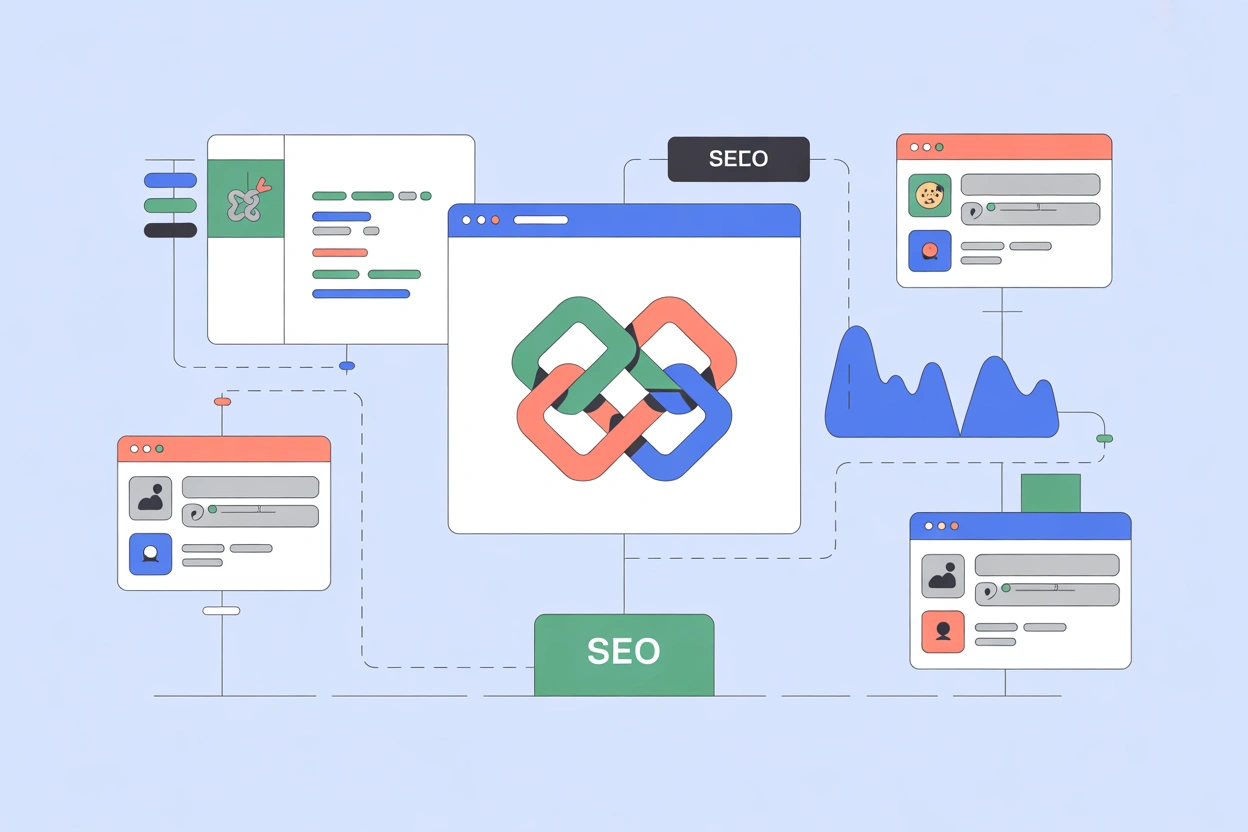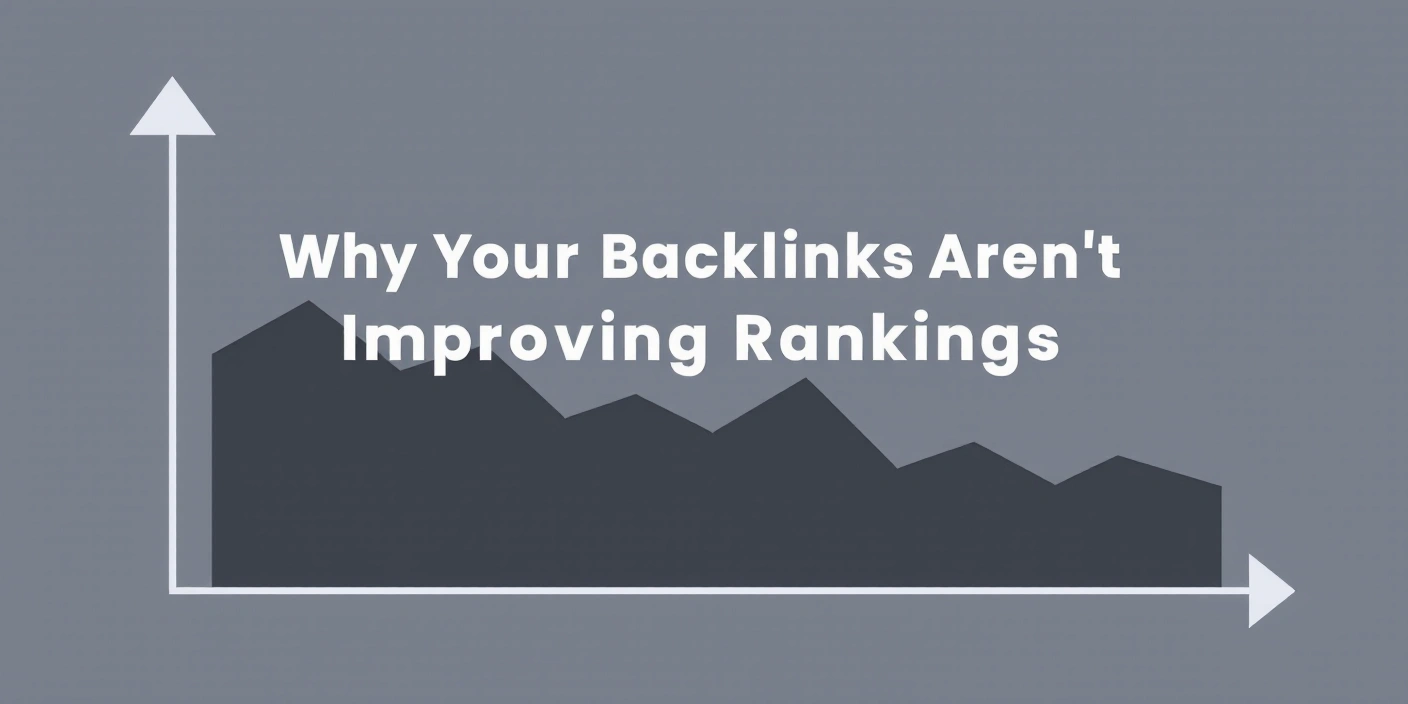Domain Authority - Definition, Strategies, and Best Practices

SEO has evolved beyond simple keyword stuffing. Today, search engines reward authority, and Domain Authority (DA) serves as a key indicator of that. This article explores how to build a website that commands respect from both search engines and users, driving long-term SEO success.
Domain Authority (DA), a metric developed by Moz, provides a valuable indication of a website's overall strength and its potential to rank well in search engine results. While not a direct Google ranking factor, it serves as a useful benchmark and a helpful tool for guiding SEO strategy. This article delves into the concept of Domain Authority, exploring its significance in SEO, the factors that influence it, and the strategies for building and improving it to achieve sustainable online success.
Fundamentals of Domain Authority (DA)
Defining Domain Authority
Domain Authority (DA) is a score, on a scale of 0-100, that predicts a website's ability to rank in search engine results pages (SERPs). Developed by Moz, it's calculated by evaluating various factors related to a website's link profile.
Here's a breakdown of key aspects:
DA is a logarithmic scale, meaning it's easier to improve your DA from 20 to 30 than from 70 to 80. Moz's algorithm considers factors like the number of linking root domains and the quality of those links.
- DA predicts the ranking strength of an entire domain or subdomain.
- PA, on the other hand, predicts the ranking strength of a single page.
The Importance of Domain Authority: A Key Indicator
While Google doesn't officially use DA, it reflects many factors that are important for SEO.
- How DA Influences Search Engine Rankings: Websites with higher DA tend to have a stronger link profile, which can correlate with better rankings.
- The Correlation Between DA and Organic Traffic: Higher DA often indicates a website with more authority and visibility, which can lead to increased organic traffic.
- DA as a Benchmark for Website Competitiveness: DA can be used to gauge how competitive a website is in its niche and set realistic SEO goals.
Factors That Influence DA
Several factors contribute to a website's Domain Authority:
- Quantity and Quality of Backlinks: The number and quality of links from other websites pointing to your site are a major factor. Links from reputable, high-authority sites carry more weight.
- Website Age and History: Older websites with a consistent history of providing valuable content tend to have higher DA.
- Website Structure and Usability: A well-organised website with a clear navigation structure and a positive user experience can indirectly influence DA by improving user engagement.
- Content Quality and Relevance: High-quality, relevant, and comprehensive content attracts links and encourages user engagement, both of which contribute to DA.

Link Building Strategies for DA
Earning High-Quality Backlinks
Backlinks are a crucial factor in building Domain Authority. They act as "votes of confidence" from other websites, signaling to search engines that your site is a valuable resource.
Creating Valuable and Linkable Content: The best way to earn backlinks is to create content that other websites naturally want to link to, such as:
- Original research and data.
- In-depth guides and tutorials.
- Infographics and visual content.
Outreach and Relationship Building: Reaching out to other website owners and bloggers to promote your content and request links. Building relationships with influencers in your industry can also lead to valuable backlink opportunities.
Digital PR and Content Promotion: Promoting your content through public relations efforts and other channels to increase its visibility and attract links from reputable sources.
Analysing Backlink Profiles
It's not just about the quantity of backlinks, but also the quality. Analysing your backlink profile is crucial.
- Utilising Tools Like Ahrefs and SEMrush: These tools provide detailed information about your backlink profile, including the authority of linking websites and potential toxic links.
- Identifying Toxic Backlinks and Disavowing Them: Removing or disavowing (telling search engines to ignore) backlinks from low-quality or spammy websites, as these can harm your DA.
- Monitoring Backlink Growth and Diversity: Tracking the growth of your backlink profile over time and ensuring that your links come from a diverse range of sources.
Internal Linking for DA
While external links are important, internal linking (links within your own website) also plays a role in distributing link equity and improving website structure.
- Creating a Strong Internal Linking Structure: Linking relevant pages within your website to each other, creating a network of interconnected content.
- Using Relevant Anchor Text for Internal Links: Using descriptive and relevant anchor text (the clickable words) for internal links to help search engines understand the context of the linked pages.
- Distributing Link Equity Effectively: Strategically linking to your most important pages to pass on link equity and boost their ranking potential.
Content and Technical SEO for DA
Content Excellence and E-E-A-T: Demonstrating Authority
High-quality, authoritative content is essential for building both user trust and Domain Authority.
- Creating Comprehensive and Authoritative Content: Providing in-depth, accurate, and up-to-date information that establishes your website as a valuable resource in your niche.
- Demonstrating Expertise, Authoritativeness, and Trustworthiness (E-E-A-T): Adhering to Google's E-E-A-T guidelines by showcasing the expertise of your content creators, the authoritativeness of your website on the topic, and the trustworthiness of your information.
- Content Optimisation for User Engagement: Creating content that is engaging, easy to read, and provides a positive user experience, encouraging visitors to stay on your site and explore further.
.png)
Website Structure and UX: A User-Friendly Experience
A well-structured website and a positive user experience (UX) can indirectly contribute to DA by improving user engagement and search engine crawlability.
- Improving Website Navigation and Architecture: Creating a clear and intuitive website structure that makes it easy for users to find the information they need.
- Optimising for Site Speed and Mobile-Friendliness: Ensuring that your website loads quickly and is accessible and usable on mobile devices, which are crucial factors for both user experience and SEO.
- Enhancing the Overall User Experience: Focusing on creating a website that is visually appealing, easy to use, and provides a positive and seamless experience for visitors.
Technical SEO Best Practices
Technical SEO focuses on optimising the technical aspects of your website to make it easier for search engines to crawl and index your content.
- Ensuring Proper Indexing and Crawlability: Making sure that search engines can easily access and understand your website's content, avoiding issues that might block or hinder crawling.
- Fixing Technical Errors and Implementing Schema Markup: Addressing technical errors like broken links and implementing schema markup (structured data) to provide search engines with more information about your website's content.
- Maintaining a Secure and Accessible Website: Ensuring that your website is secure (HTTPS) and accessible to all users, including those with disabilities, which are important factors for both user trust and SEO.
Long-Term DA Growth: The Marathon of Authority
Consistency and Authority Building: The Long Game
Building Domain Authority is a marathon, not a sprint. It requires a consistent and sustained effort over time.
- Regularly Publishing High-Quality Content: Consistently creating and publishing valuable content that establishes your website as a reliable source of information in your niche.
- Building a Reputation as a Valuable Resource: Focusing on providing accurate, informative, and engaging content that meets user needs and solves their problems.
- Establishing Thought Leadership in Your Niche: Sharing unique insights, conducting original research, and contributing to industry discussions to position yourself as an expert.
.png)
Brand Building and Online Presence
A strong brand and a positive online presence can significantly contribute to your perceived authority.
- Developing a Strong Brand Identity and Voice: Creating a consistent brand identity and using a clear and engaging brand voice across all online platforms.
- Engaging with Your Audience on Social Media: Building a strong social media presence and actively engaging with your followers to foster a sense of community.
- Building a Positive Online Reputation: Monitoring your online reputation and addressing any negative feedback or reviews promptly and professionally.
Adaptability and Algorithm Updates
Search engine algorithms are constantly evolving, and your SEO strategy must be adaptable to these changes.
- Staying Informed About Search Engine Algorithm Changes: Keeping up-to-date with the latest algorithm updates and understanding how they might impact your website's rankings.
- Adapting SEO Strategies to Evolving Best Practices: Adjusting your SEO strategy to align with current best practices and recommendations from search engines.
- Focusing on Long-Term, Sustainable SEO: Prioritising ethical and sustainable SEO practices that focus on providing value to users and building a long-term online presence.
DA Misconceptions and Advanced Strategies
Debunking DA Myths: Separating Fact from Fiction
There are many misconceptions about Domain Authority, and it's important to separate fact from fiction.
- Addressing Common Misconceptions About DA: Clarifying that DA is not a direct Google ranking factor and that it's a metric developed by Moz.
- Separating Fact from Fiction in SEO: Dispelling common myths and misinformation about SEO, focusing on evidence-based strategies and reliable information.
- Focusing on Actionable Strategies: Emphasising the importance of focusing on strategies that directly improve website quality, user experience, and content relevance, rather than solely chasing DA.
DA and Other SEO Metrics
DA is just one piece of the puzzle. It's important to consider it in conjunction with other SEO metrics.
- Understanding the Relationship Between DA and Other Metrics: Recognising how DA correlates with metrics like organic traffic, keyword rankings, and conversion rates.
- Using DA in Conjunction with Other SEO Tools: Combining DA data with insights from other SEO tools to gain a more comprehensive understanding of website performance.
- A Holistic View of SEO Success: Emphasising that SEO success depends on a combination of factors, including technical optimisation, content quality, user experience, and link building.
The Future of DA and SEO: Evolving Concepts
The concept of website authority and its measurement is likely to continue to evolve.
- The Evolving Role of DA in a Changing SEO Landscape: Considering how the role of DA might shift as search engine algorithms become more sophisticated in evaluating website quality and user intent.
- The Impact of AI and User Experience on Website Authority: Exploring how AI and user experience (UX) will play an increasingly important role in determining website authority in the future.
- The Long-Term Importance of Building a Strong Online Presence: Emphasising the enduring value of building a strong online presence based on expertise, trust, and user satisfaction, regardless of specific metrics.
.png)
Conclusion
Domain Authority (DA) is a valuable tool for understanding a website's ranking potential, but it should not be the sole focus of an SEO strategy. Building a website that provides high-quality content, a positive user experience, and a strong backlink profile is essential for improving DA and achieving long-term SEO success. It's a holistic approach that prioritises user value and sustainable growth.
In the long run, the most effective way to improve DA is to focus on building a website that is a trusted and valuable resource for its audience. This involves consistent effort, ethical SEO practices, and a commitment to providing the best possible online experience. While DA can guide your efforts, remember that true success lies in creating a website that serves its users and establishes a lasting online presence.
References:
https://ahrefs.com/seo/glossary/link-equity
https://developers.google.com/search/blog/2022/12/google-raters-guidelines-e-e-a-t
https://moz.com/learn/seo/domain-authority
https://www.cloudflare.com/learning/ssl/what-is-https/
https://www.searchenginejournal.com/search-engines/algorithms/
.avif)



%20%E2%80%94%20Ranked%20%26%20Reviewed.webp)




